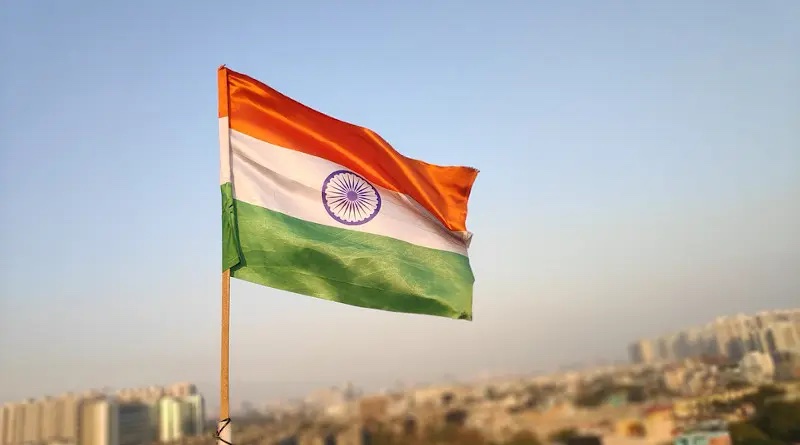Why Neutrality Is Beneficial For India In Ukraine Crisis – OpEd
India has been under vehement criticism for its neutral stand on Russia invasion in Ukraine. This goes against its global stand in foreign policy where it has always been in forefront to advocate sovereignty of the nation and settling the dispute in peaceful negotiation. On 26th February 2022, UN Security Council held a vote on resolution demanding that Moscow should immediately stopped attack on Ukraine and withdraw all troops . India was among three countries to abstain, along with China and UAE. India’s decision bewildered and irked the global watchers. India pleaded that its neutrality is for national interests.
Arguably, excepting defence equipments, India’s dependence on Russia has minimized after the breakdown of Soviet Union. In oil, its dependency is merely 2 percent. In trade, it is less than 3 percent.
However, there is another side of India’s relation with Russia, which acted significant to Russian relation and pivot to India’s neutrality . There are four factors which attributed to the “balanced” policy in the wake of national interests. First, a long term and unhindered political relationship with Russia, embracing a strong defence tie up and its continuous support for siding with India in any war conflict since India –Soviet Treaty in 1971. Second, Russia’s key role in supply of arms and ammunition, nuclear submarine and scaling up India in global map for space technology. Third, opening a new window to outweigh the oil crisis by turning to discounted Russian oil and fourth, India’s strategic stake in BRICS, which help to influence Russia and dilute China’s predominance – the major threat to India.
The truth of the mater is that India has always maintained its independent foreign policy. India declared that its neutral stand is for national interests. It is not the first time for its stand alone policy. In 2014, India stood for a “balanced” policy in the wake of Russian occupation of Crimea.
Russia has been a long standing supporter of India’s membership in Nuclear Suppliers’ Group. India’s advancement in defence manufacturing, such as BrahMos Missile System and production of SU-30 aircraft and T-90 tanks exemplify Russian cooperation. Both concluded agreements on supply of S-400 air defence systems. India currently has 65 percent of its defence equipment from Russia. As Indian Foreign Secretary stated, “without Russian support, our ships won’t sail and our aircrafts would not fly”.
A new era of relation was developed with the signing of “Declaration on the “India-Russia Strategic Partnership” in October 2000. India-Russia ties acquired a new momentum in all the areas of bilateral relations, including political, security, defence, trade and economy, science and technology and culture. During the visit of Mr Putin to India in December 2010, the strategic partnership was elevated to the level of “Special and Privileged Strategic Partnership”
Russia is the second biggest exporter of crude oil in the world, after Saudi Arabia. Even though India is a small importer of Russian crude oil ( 2 percent) , new window opens to ward off the oil crisis with the supply of discounted Russian oil. Russia has offered India oil at discounted price. Sanctions does not prevent India from importing oil.
The BRICS (Brazil, Russia, India, China and South Africa ) emerged a potent platform to empower India to exert group pressure on China and influence Russia to defuse tension between New Delhi and Beijing. It is the first global club to challenge the west. It accounts for 23 per cent of the world economy, 16 per cent of world trade and contributed 50 per cent to global economic growth. The US-China trade war opens a new opportunity for BRICS to play a dynamic role in protecting the global multilateral trading system, which was in jeopardy after the USA signaled trade unilateralism.
Eventually, Russia played a leadership role in defusing the India-China tensions under the flagship of BRICS, when it helped to release 10 Indian Army soldiers, captured during Galwan Valley clashes on June 15, 2020. Chinese official media Global Times applauded India’s initiative to chair BRICS Summit in 2021 for the second time, leaving aside the border disputes unsettled. Chinese Foreign Ministry spokesman said, “We support India hosting BRICS’s summit and stand ready to work together”.
Needless to say, China’s economy is in peril. Debt in China has tripled to 300 percent of GDP. China’s supply chain industry, which shares one-fourth of global market, is in turmoil. Investors are shifting to Vietnam and other Asian countries. This might be a favourable factor for weaning away the China threat, in combination with its inability to support Russia physically in Ukraine war. So far, China supported Russia in words and casing votes in United Nation forums. It frayed in military and financial support to Russia.
This sends a message of China losing its grip in Asia, and bears well for exerting influence on China and curbing its threat to India.


What goes around, comes around. So india adopted a neutral position after Russia invaded ukraine twice. Does this mean india will find that position acceptable from other countries, in the event that China decides to invade india?